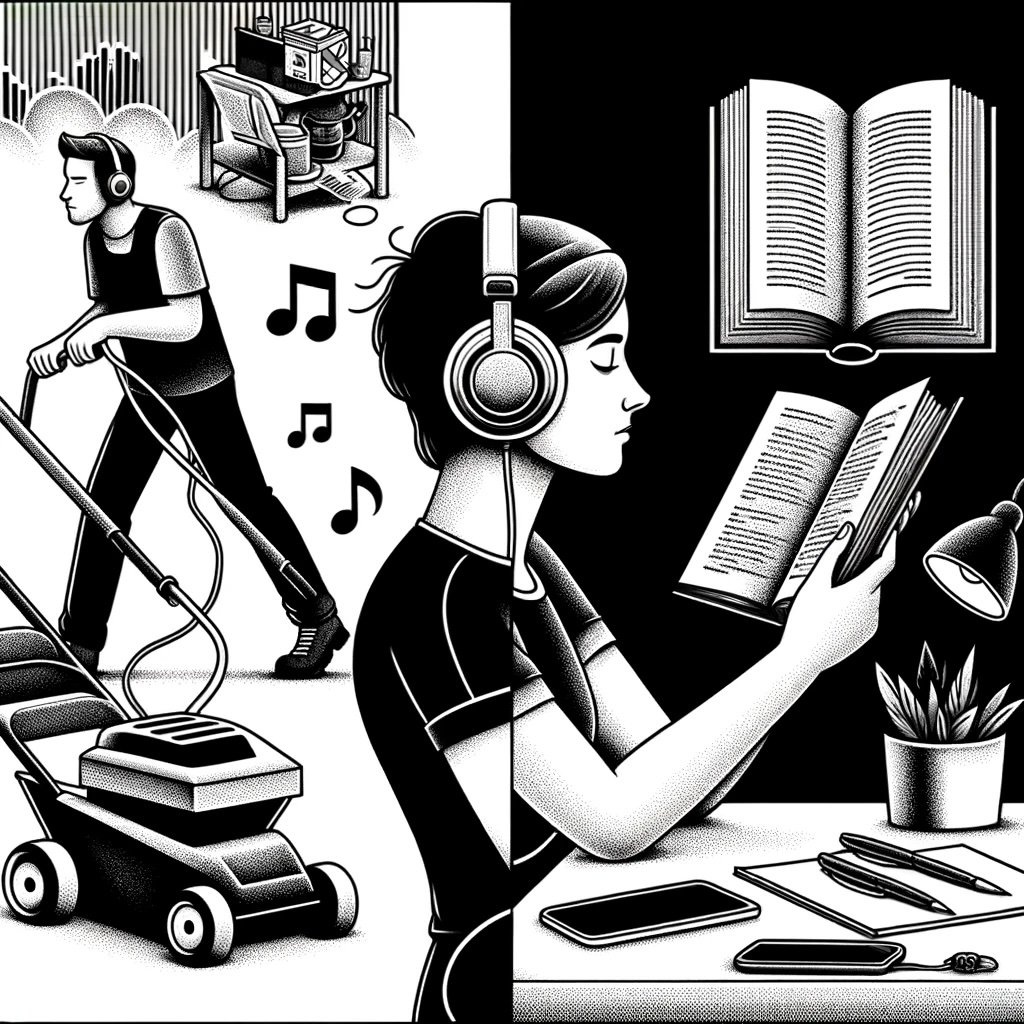The Bible almost got it right. Ecclesiastes 3:4-5 should have read, “a time to weep, and a time to laugh; a time to mourn and a time to dance; a time to listen to audiobooks and a time to read paper books…”
Audiobooks are a more passive form of learning; they lend themselves well to books of entertainment or texts that you want to explore first, before sitting down to study them carefully. With audiobooks, you’re engaging a different part of your brain. In this medium, you rely on your conversational skills of listening, and because we can listen while doing other things, the temptation to mow the lawn, answer emails, or cook dinner at the same time goes up – at least it does for me.
When you read a paper book, you’re using a different part of the brain. In fact, our brains never evolved to read. It’s a skill we developed roughly 6,000 years ago (a blink of time across the evolution of man). By learning to visually process and read words, we create new regions of the brain, connections that would not be there simply by listening to words being read to us.
I think that’s why I feel more engaged when I read a paper book. Sitting down at my desk, opening the cover, and parsing through the words turns me into a student. I’m more inclined to take notes, journal about ideas, and connect the dots. I don’t naturally do those things with audiobooks.
So, there’s a time and place for both. If you’re looking for entertainment or you want to explore a complex book first, before you dig in and really study, then audiobooks are a great choice. But if you’ve found a book you want to analyze, nothing beats paper, an afternoon in the notes, and some undiluted thinking.
Until tomorrow – read slowly – take notes – apply the ideas.
-Eddy
